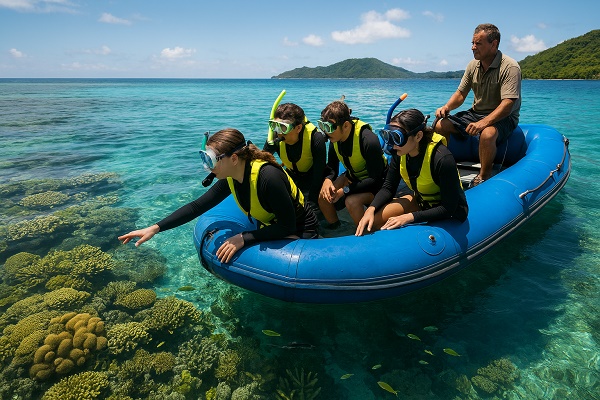Exploring Nature Responsibly and Sustainably

Ecotourism is a rapidly growing sector within the travel industry, offering a unique opportunity to experience the natural beauty of the world while minimizing environmental impact. At its core, ecotourism aims to promote sustainable travel practices that benefit local ecosystems and communities. This approach ensures that travelers can connect with nature in an educational and respectful way, contributing to the preservation of wildlife, forests, oceans, and cultural heritage. In this article, we will explore the principles, benefits, challenges, and key destinations that embody the spirit of ecotourism.
The Principles of Ecotourism
Ecotourism is not just about visiting remote or pristine environments but doing so in a way that minimizes harm and supports environmental conservation. The core principles of ecotourism include:
Sustainability:
Ecotourism promotes practices that reduce the carbon footprint and conserve resources like water, energy, and food. Accommodations and tours often focus on eco-friendly methods, such as using renewable energy, conserving water, and minimizing waste.
Education:
One of the fundamental aspects of ecotourism is education. Travelers learn about the local flora and fauna, the cultural significance of the area, and the challenges faced by the environment. This creates awareness and motivates tourists to become stewards of the natural world.
Community Involvement:
Ecotourism supports local economies by providing employment opportunities for indigenous communities. It also helps preserve local culture and heritage, as travelers are encouraged to interact with and respect local traditions and lifestyles.
Conservation of Biodiversity:
Ecotourism contributes to the protection of endangered species and ecosystems. Tourists' fees often support conservation programs, wildlife protection, and habitat restoration efforts.
Benefits of Ecotourism
Conservation of Nature and Wildlife: Ecotourism brings funding and resources to conservation efforts, helping to protect endangered species and ecosystems.
Economic Opportunities for Local Communities: By engaging with ecotourism, local communities gain economic benefits without needing to compromise the environment. They can earn through guiding, hospitality, and selling locally made crafts.
Promoting Environmental Awareness: Through direct experience with nature, travelers become more conscious of environmental issues, which leads to more sustainable consumer behaviors when they return home.
Top Ecotourism Destinations
Costa Rica:
Known for its rich biodiversity and commitment to environmental conservation, Costa Rica has become a global leader in ecotourism. Its national parks, like Manuel Antonio and Corcovado, offer breathtaking landscapes and opportunities to observe wildlife such as monkeys, toucans, and sea turtles.
Galápagos Islands, Ecuador:
A UNESCO World Heritage site, the Galápagos Islands are a living laboratory of evolution. Guided tours focus on understanding the delicate ecosystems of the islands and protecting its endangered species, including the famous Galápagos tortoises.
Borneo, Malaysia:
Borneo is home to tropical rainforests, diverse wildlife, and indigenous cultures. Ecotourism in Borneo emphasizes sustainable forest tours, wildlife watching (including orangutans), and cultural exchanges with indigenous groups like the Iban.
Madagascar:
With its unique flora and fauna, Madagascar is a prime example of the importance of ecotourism in preserving biodiversity. Guided tours in national parks like Andasibe-Mantadia and Ranomafana allow visitors to witness endemic species like lemurs and chameleons.
Challenges and the Future of Ecotourism
While ecotourism offers numerous benefits, it also presents challenges. Over-tourism in popular eco-destinations can lead to environmental degradation, while there is always the risk of commercialization undermining the sustainability of projects. To address these issues, stakeholders must continue to implement responsible tourism practices, support low-impact travel, and enforce environmental regulations.
In the future, ecotourism is expected to become more integrated with digital innovations, like virtual reality tours that allow individuals to experience nature without leaving their homes, thus further reducing the carbon footprint.
























